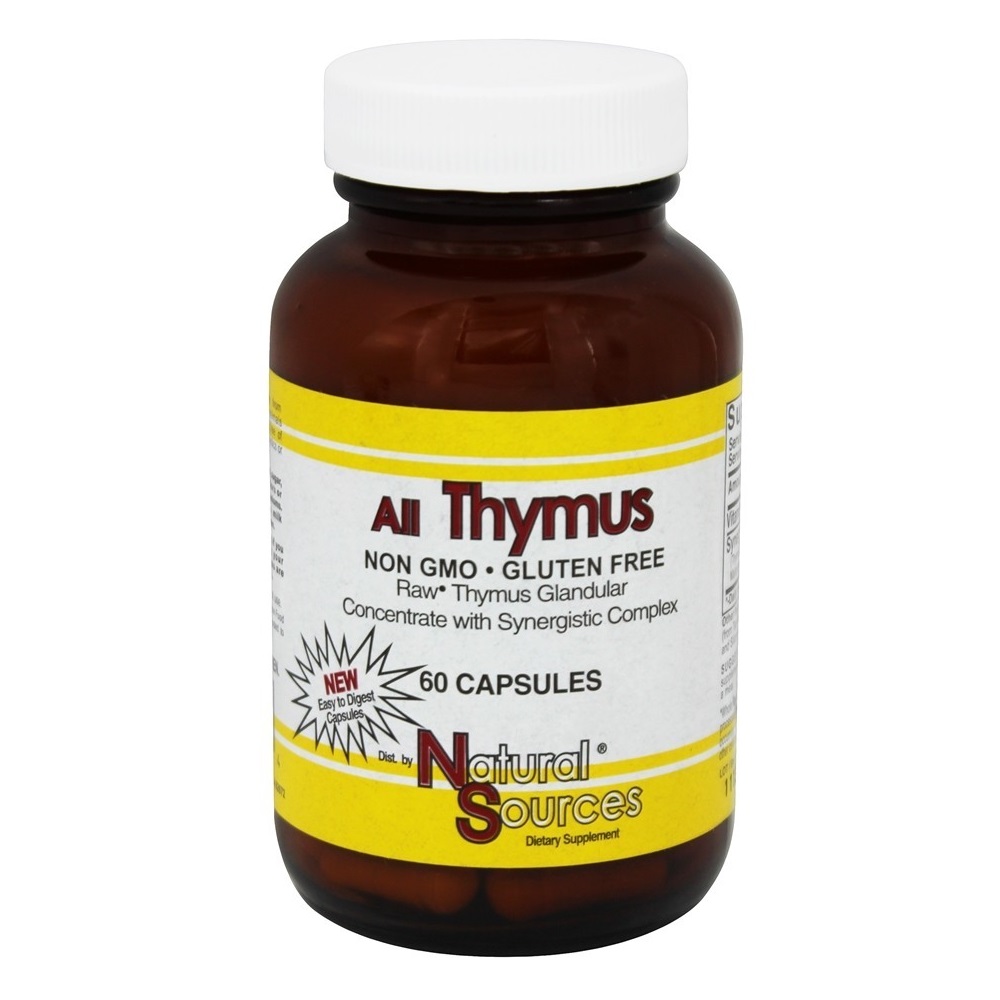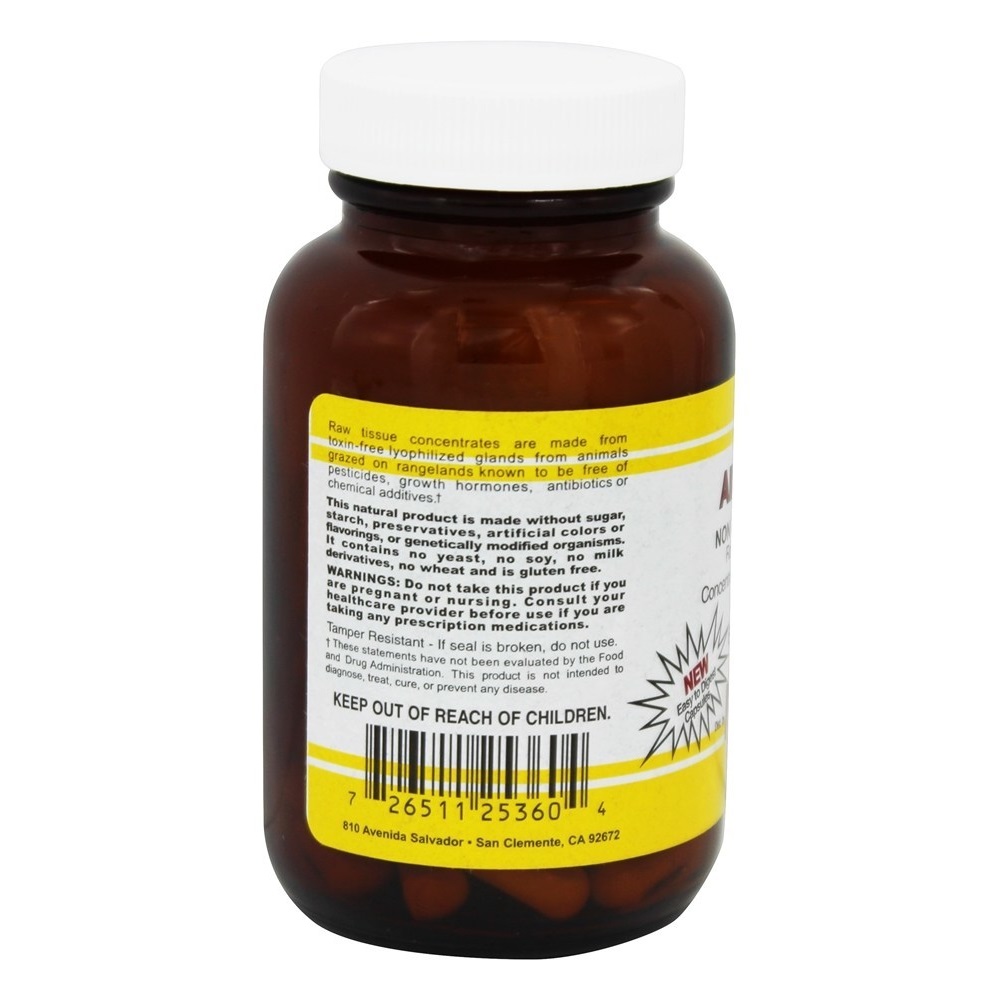Natural Sources All Thymus is a glandular extract of thymus, which plays a role in immune function, lymphocyte formation, and antibody production. Natural Sources All Thymus is a Raw Thymus Glandular Concentrate and dietary supplement. Whole Raw tissue concentrated from bovine sources specially processed (freeze-dried) at or below -5° C to preserve natural occurring vitamins, enzymes, nucleotides, lipoproteins and all other cellular components. Raw tissue concentrates imported from New Zealand are made from toxin-free lyophilized glands from animals grazed on rangeland free of pesticides, growth hormones, antibiotics or chemical additives.
We live in a microbial bath: the air, the water, even our skins are alive with microorganisms that can invade and cause infection. But the healthy person is infected only rarely, largely because of the work of the thymus.
The thymus directs the body’s immunity,the system that tells “self”-the body’s own cells-from “non-self”-bacteria, viruses, fungi,proteins and polypeptides, even cancerous cells.The thymus is a spongy, pink gray gland located in the chest just behind the breastbone. It is large in a newborn child, continues to grow until puberty, then shrinks in adulthood. While it is large, the thymus produces the hormone thymosin, which activates the specialized T-cells that move out into the spleen, the lymph nodes, and the bone marrow. T-cells are crucial to the complex task of recognizing and then destroying outside invaders and substances. In adulthood, the thymus, although no longer producing T-cells, appears to secrete hormones that keep the T-cells working.
Deterioration of the immune system can lead to frequent, even fatal infections. In addition, some diseases are apparently due to auto-immunity-that is, the immune system malfunctions, mistaking self for non-self and attacking the body’s own tissues.Autoimmunity is suspected in many serious diseases.
In the fetal state, the human body grows cells known as stem cells in the bone marrow of the large bones. The stem cells migrate through the thymus, liver and spleen where certain immuno-proteins and antigens are added to them. They also acquire the ability to synthesize other immuno-proteins. These circulating cells known as T-cells and B-cells respectively then take up residence in the lymph nodes where they carry out their function of protecting the body from foreign organisms and toxins.




Reviews
There are no reviews yet.